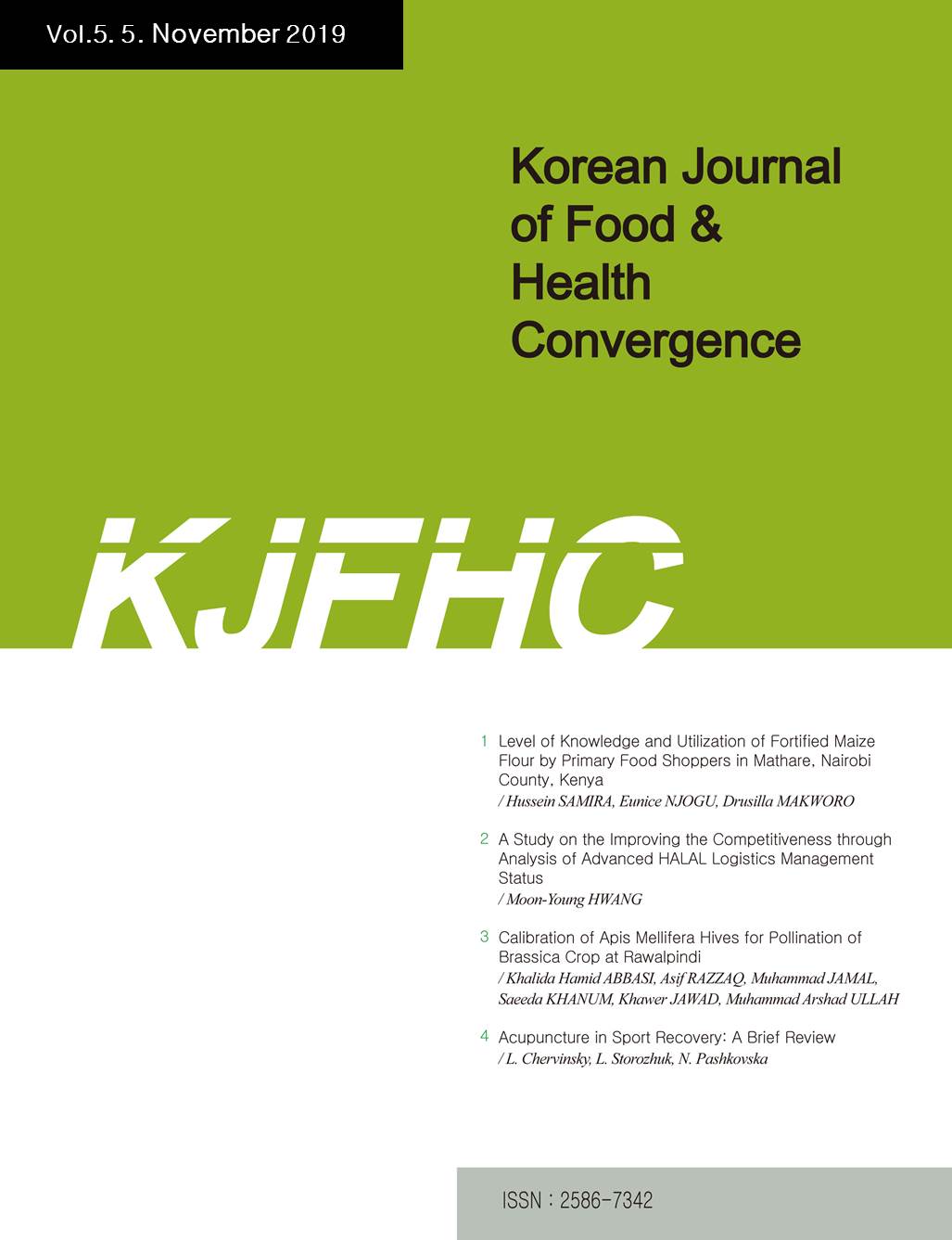- 권한신청
- E-ISSN2586-7342
- KCI
A Study on Physicochemical and Sensory Characteristics of Ssanghwa Tea
KIM, Jung-Yun (Dept. of Food & Nutrition, Seojeong University)
JO, Eun-Mi (Dept. of Early childhood education, Seojeong University)
RHA, Young-Ah (Dept. of Food Science and Services, Eulji University)
Abstract
This study tried to analyze sensual properties by classifying the thermal water extract of the main material used in Ssanghwa tea. Through this study, we wanted to develop popular Ssanghwa tea and further carry out basic research for the development of various menus using it. The ingredients for the Ssanghwa tea were washed under running water, then dehydrated and put in a pot as 2L of purified water. Ssangwha tea were heated at 100℃ for 10 minutes, then lowered the temperature to 75℃ and boiled down to 200 ml for 110 minutes. This study evaluated sensory characteristics of four types of commercial products and the five types manufactured by the description analysis. Quantitative analysis of the commercial Ssanghwa tea showed significant differences between samples in seven of the total 13 sensory characteristics except OG(Smell of grass), OC(Oriental medicine smell), TG(Umami), RT(Thick), RC(Rough) and RS(Tub-Tub) (p<0.05). In particular, differences between samples were evident in CT(Transmittance), CB(Brownness), TW(Sweet taste) and TB(Bitter) (p<0.001), which appeared to be the main differentiated features of appearance, aroma and taste for commercial Ssanghwa tea. This study tried to analyze sensual properties by classifying the thermal water extract of the main material used in Ssanghwa tea. Through, we wanted to develop popular Ssanghwa tea and further carry out basic research for the development of various menus using it.
- keywords
- Ssanghwa Tea, Traditional Drink, Physicochemical Characteristics, Sensory Evaluations
- 다운로드 수
- 조회수
- 0KCI 피인용수
- 0WOS 피인용수

